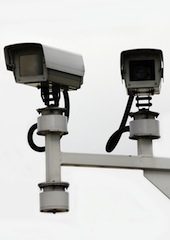Shadows of Snowden Over the Atlantic Alliance
Beyond betrayal of trust, what about the NSA scandal worries Europe most?
August 27, 2013

It is one thing to argue that the Europeans are plain naive when they protest the activities of the NSA, America’s electronic spying agency, too much. After all, the argument goes, there are bad guys in the world and somebody has to tackle them, even by shady means.
But it is an entirely different matter if, at about every turn in the debate, new revelations are coming out that U.S. authorities have essentially used — and grossly abused — the credulity of the country’s allies to fulfill its surveillance agenda.
Spying on one’s own allies at liberty and putting listening posts all over UN and EU installations cannot sit well with the international community. Here again, people might argue, what do you expect? It’s only par for the course and anybody, given the means, would do it.
Where this facade of U.S.-centered apologetics finally breaks down is around one simple fact: Allies in Europe always believed that effective checks and balances were in place in the United States to prevent gross abuses.
It is precisely this presumption which has now been irrefutably proven to have been merely wishful thinking.
As the NSA scandal makes plain, alongside the shameless complicity of the at best spineless Obama Administration, there cannot be any talk of any rule of law applying to these matters in the United States.
As we learned, U.S. spy agencies are entirely above the law. In the forever fearful United States, in an amazingly cowardly U.S. population, the mere mention of the word “terrorism” is sufficient to give these shady operators carte blanche.
As a result, anything goes. The U.S. Congress, supposedly the supervisory body, is made a mere bystander, if not an outright fool. Private-sector companies, the big data firms — aka America’s new weapons of mass destruction — are happily complicit.
After all, for them the government is either a big client or a valuable partner: helping the U.S. government in its shady, if not outright illegal dealings certainly provides a lot of good will and “flexibility” when it comes to U.S. authorities assessing these firms’ dealings with private citizens.
This is the brave new American world: One (dirty) hand simply launders the other (dirty) hand.
Meanwhile, those in Europe and elsewhere who in past decades accorded good will aplenty to the Americans as an ally a left shamefaced: Their fundamental belief that the rule of law was firmly in place in the United States is an illusion. As a result, they now must urgently reconstitute their world view.
The only place where the rule of law is really in force is with regard to the enforcement of contracts — unless, of course, as Samsung recently learned, when that runs counter to (short-term) interests of a major U.S. company with privileged access to the White House.
All of this leaves long-time friends of the United States in a very uncomfortable position. The country increasingly and incontrovertibly reveals its hand as being about as dirty as its long-time antagonists in the global system (think Soviet Union) and its domestic allies inside Western societies always argued.
That points to a major values gap across the Atlantic that no amount of shallow smooth talking by America’s official friends of Europe in the Washington commentariat and think tank scene can smooth over any longer.
The shadows of Edward Snowden are becoming ever longer and more meaningful.
Takeaways
US authorities have used and grossly abused the credulity of their allies to enact a surveillance agenda.
European allies believed effective checks & balances were in place in the US to prevent spying abuses.
Just mentioning the word "terrorism" to Americans is enough to give their shadier operators carte blanche.
US big data firms (aka America's new weapons of mass destruction) are happily complicit in surveillance.
Snowden showed the illusion of Europe's belief that the rule of law was firmly in place in the US.
Read previous

The Battle Against “Apple Picking”
August 26, 2013
